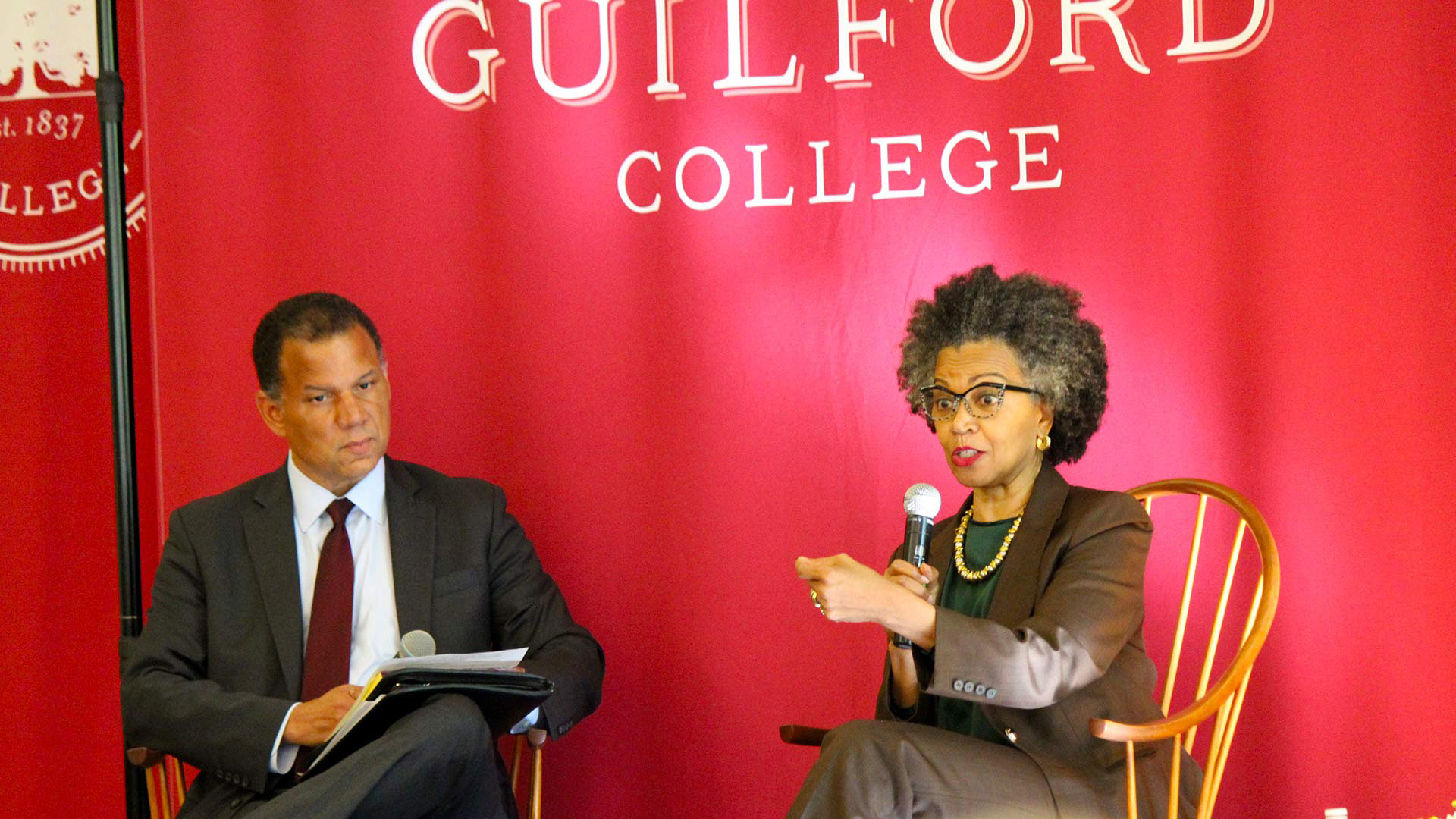
President Farmbry holds a conversation with Ambassador Gina Abercrombie-Winstanley at the inaugural Conceptualizing Peace forum at Guilford.
Guilford College's Conceptualizing Peace forum brought together more than 100 attendees from around Greensboro to discuss ways for reducing conflict.
“These are hard questions that people are wrestling with today. They require deliberate and thoughtful conversations. My gut tells me that Guilford is the place to have these conversations.”
When we’re asked to think about people who have cultivated a more just and peaceful world, where do our minds take us?
Do we see a fist-pumping Nelson Mandela? A smiling Mahatma Gandhi? Is it a clip of Egyptian President Anwar Sadat, Israeli Prime Minister Menachem Begin and President Jimmy Carter clasping hands at Camp David?
Maybe it hits closer to home, in our own communities, our places of work or worship.
At Guilford College’s Conceptualizing Peace Forum, a one-day gathering April 12 of education, faith and business leaders seeking ways for living in a more peaceful world, speakers continued to return to a common message: We need to first look within ourselves as agents of change.
Bience Gawanas is a Namibian lawyer who has been the under-secretary-general and special adviser on Africa at the United Nations. She told about 100 people at the Hege Academic Commons not to wait for the government or institutions to change the world. “Certainly they are essential but no change will come without demand for peace and all of us need to be part of that demand,” she says.
Conceptualizing Peace was the inspiration of President Kyle Farmbry. While the current political and social climate has many higher-education institutions steering clear of discussions about the war in Ukraine and the Israel-Hamas war, Kyle said seeking solutions to the escalating conflicts – and violence everywhere – is part of Guilford’s core mission.
In the months after Hamas’ Oct. 7 attack on Israel and the war that followed, Kyle says many higher-education institutions have struggled to determine their role in addressing the conflict.
“There are many advantages to being a Quaker school and the way we go about things,” says Kyle. “We do things in a reflective, deliberate way. Today is a product of that deliberation and reflection and lots of debate.”
Attendees heard the stories of refugees impacted by wars and listened to discussions about the roles that governments, institutions and people of faith should be taking to build consensus for change.
Outside Hege, about two dozen Guilford students stood on the library’s steps in support of Palestinians. During a break in the forum, Kyle urged speakers and attendees to head outside and meet with the students.
Former U.S. Ambassador Gina Abercrombie-Winstanley, who took part in a keynote conversation with Kyle to open the forum, and other speakers met with students to hear their concerns.
Kyle says Friday’s peace forum will not be the College’s last. He also envisions guest lecturers and new courses developed around cultivating peace globally and locally.
“I want this to be a long-term initiative,” he says. “These are hard questions that people are wrestling with today. They require deliberate and thoughtful conversations. My gut tells me that Guilford is the place to have these conversations.”

